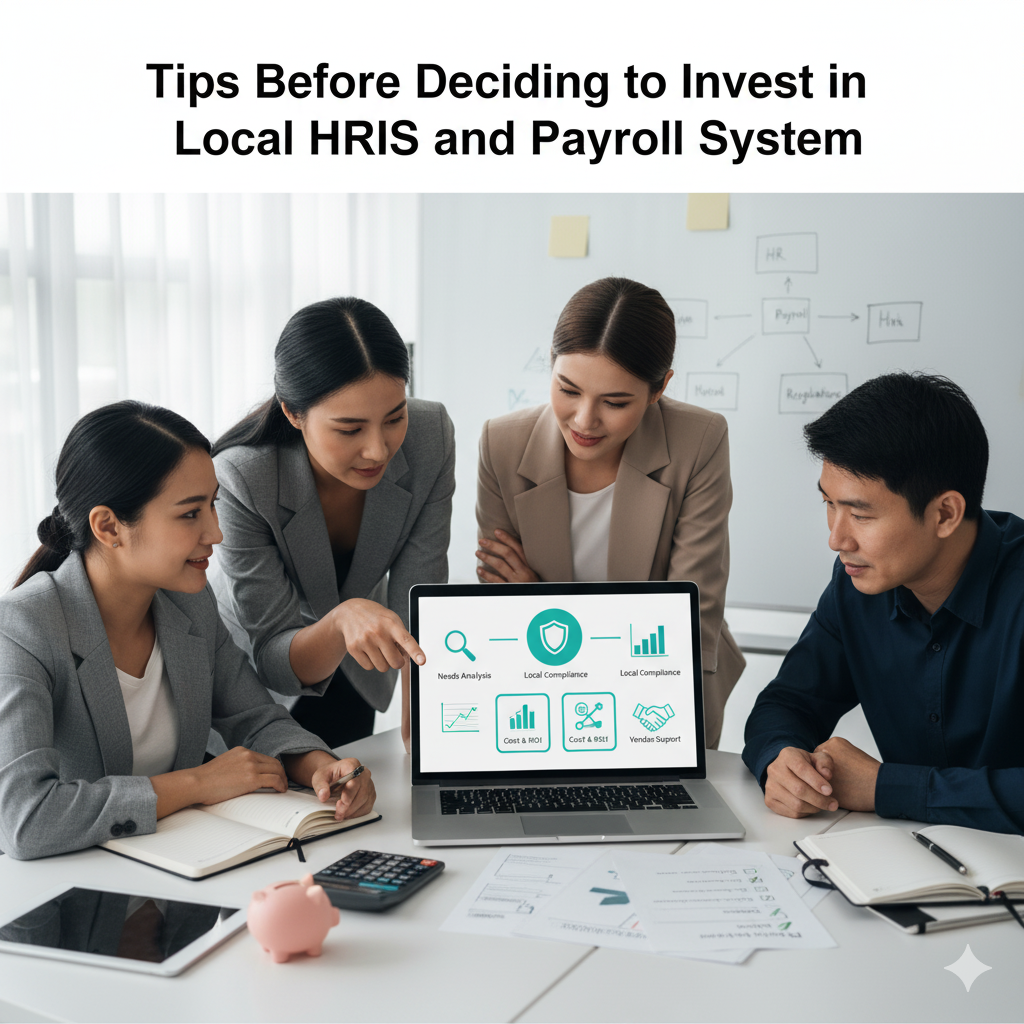Address
Kaypian, San Jose Del Monte City, Bulacan Philippines
Work Hours
Monday to Friday: 8AM - 6PM
Weekend: 10AM - 5PM
Address
Kaypian, San Jose Del Monte City, Bulacan Philippines
Work Hours
Monday to Friday: 8AM - 6PM
Weekend: 10AM - 5PM


Integrated HR. Accurate Payroll.


Integrated HR. Accurate Payroll.

Investing in a Human Resource Information System (HRIS) and payroll software is a major step for any organization. It can transform how you manage employee data, attendance, leave, and payroll. However, choosing the right local HRIS and payroll system requires careful consideration — not all systems are built the same, and the wrong choice can cost both time and money.
In this guide, we’ll share key tips to consider before deciding to invest in a local HRIS and payroll system to help ensure a smooth, cost-effective, and compliant transition for your business.
Before exploring vendors or comparing prices, clearly define what your organization truly needs.
Ask yourself:
By identifying your requirements early, you can focus on solutions that match your business scale and goals, avoiding unnecessary features that increase costs.
If your company operates in the Philippines, your HRIS and payroll system must comply with:
A locally developed HRIS often has built-in Philippine-specific compliance tools, which reduces manual work and ensures accurate payroll processing.
✅ Tip: Ask your provider if the system automatically updates when government contribution rates or tax laws change.
A powerful HRIS is only effective if your team can use it easily. Look for:
This improves HR efficiency and boosts employee satisfaction by allowing staff to manage their own information securely.
Choosing the right HRIS provider is as important as choosing the software itself.
Consider:
Opt for a vendor that provides continuous support, system training, and on-site assistance (if needed). A reliable partner ensures your system runs smoothly long after deployment.
As your organization grows, your HR system should grow with you. Check if your HRIS can integrate with:
A scalable and integrated system ensures smoother data flow and prevents double encoding, saving time and reducing human error.
HRIS and payroll systems handle sensitive employee information — personal details, salaries, and tax data.
Ensure your chosen system:
Ask for proof of compliance or certifications from the vendor to guarantee that your employee data stays protected.
Don’t just focus on the initial purchase or subscription fee. Consider:
A cheaper system might have higher long-term costs. Always calculate the total cost of ownership before making a final decision.
Before signing a contract, request a system demo or free trial.
This allows you to:
A hands-on demo ensures your chosen HRIS truly fits your organization’s workflow.
HRIS implementation is not just a one-time project — it’s a long-term business investment.
Choose a system that can:
A future-ready HRIS helps your HR department stay efficient, data-driven, and competitive.